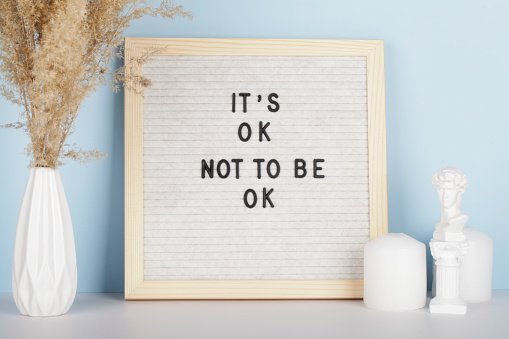Stress

Walking can be a great way to boost your physical and emotional well-being. It is a great exercise that can easily be done anywhere. Walking increases your blood flow and circulation between your brain and your body, this positively impacts your hypothalamic-pituitary-adrenal (HPA) axis which is responsible for the response of your central nervous system and stress responses (Brennan, 2021). Basically, what this means is that the body functioning while walking helps to alleviate stress, increase your overall mood, and even help you to sleep better. Walking obviously has its benefits in more ways than one, so how do you go about incorporating this into your routine? The following are tips and tricks on how to begin your walking journey.

It is never easy when a friendship ends. It could have happened one of two ways, either you were the one to end it, or your former friend decided to. And it was likely due to so many reasons, either the friendship was toxic, codependent, a significant event, the relationship just drifted apart, etc. Romantic breakups are more talked about than friendship breakups, but they happen to everyone, and they can hurt just as bad.

Everyone has an understanding that having a strong self-esteem is important, but actually establishing positive self-esteem can be difficult. When we have higher self-esteem, not only do we feel better about ourselves, we become more resilient too. Another benefit of positive self-esteem is being less vulnerable to anxiety, due to reduction in the release of cortisol (the stress hormone).

We may have all heard the term “problem-solving” but I wonder how many people actually know the steps in the process. If you ask someone how to solve a problem, they may say something like “just find what works” or “figure out the problem before trying to solve it” and just like how the average person could change the brakes on their car, an experienced mechanic will know all the basics just as well as they would know all the subtleties and best practices that would take the process from just working to working optimally. I am sure that many people reading this could say that they have solved countless problems in their lives, but to have a step-by-step guide on an effective method of doing so may yet be useful.

It is common to feel nervous during social situations, but if you have social anxiety, everyday activities can be challenging. You may feel self-conscious and struggle with self-esteem. There are several ways to cope with social anxiety. Here are some tips to help you feel better and manage the day.

Summer has its expectations to be fun and relaxing, but if you are struggling with summer depression, it isn’t. For some people, there is a biological cause. For others, the stressors of summer can pile up and affect their mood. What makes it more difficult is that you feel like you’re supposed to have a great time. This blog can help you to make your summer easier and more enjoyable.

When one hears the word acceptance, it can bring up different definitions in different people. For example, many think that the term acceptance means viewing something as okay or that you are actively allowing it to be. This definition may be fitting for communicating these ideas but in the context of therapy, the term acceptance is used differently. In Dialectical Behavioral Therapy, acceptance is a large part of the process of change and is a difficult skill to master. In this context acceptance (sometimes used in the term Radical Acceptance) can be the most powerful tool in building your mental health throughout your life.

If you have teenagers or have older children who were at some time a teenager, you may be able to understand how different it can be to interact with someone from the ages of 13-19 than it is to interact with someone younger or older. It has been well documented those adolescent years have unique and often challenging experiences for both the teen as well as those close to them in their lives. It is in these years that many parent-teen relationships suffer with both parties feeling as if the other is so disconnected. This is a common issue that many families struggle with, and it is also indicative of a time in all our adolescent journeys that we may use to relate to one another.

When a loved one is struggling with mental health or life difficulties, and they come to you for support it can be hard to know how to navigate the conversation or how to respond. Sometimes, it is instinctual to jump into “fix it” mode with advice or to become overly positive. While this can be helpful at times, it can also be a strength to provide validation or to be a comforting presence. Providing validation does not mean that you necessarily agree with this person, rather it is taking the time to learn about the emotions, show respect, and express acceptance. The following are some helpful tips for providing support and emotional validation for a loved one.

Take a minute to pause and evaluate your own social media usage. Do you find yourself becoming upset if you do not receive a specific amount of likes or comments? Have you ever altered a photo to fit a certain image? Or, have you been more consumed with getting the perfect post than being able to enjoy the moment? If you find yourself answering yes or taking too much time to think of an answer, you may need to reevaluate your social media usage. The following are some tips to utilize for social media without it becoming harmful.